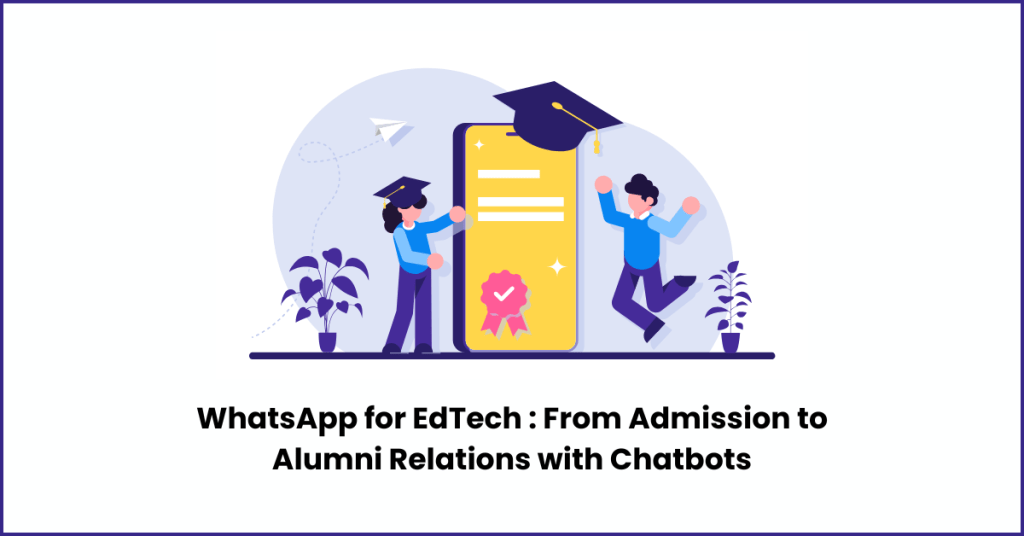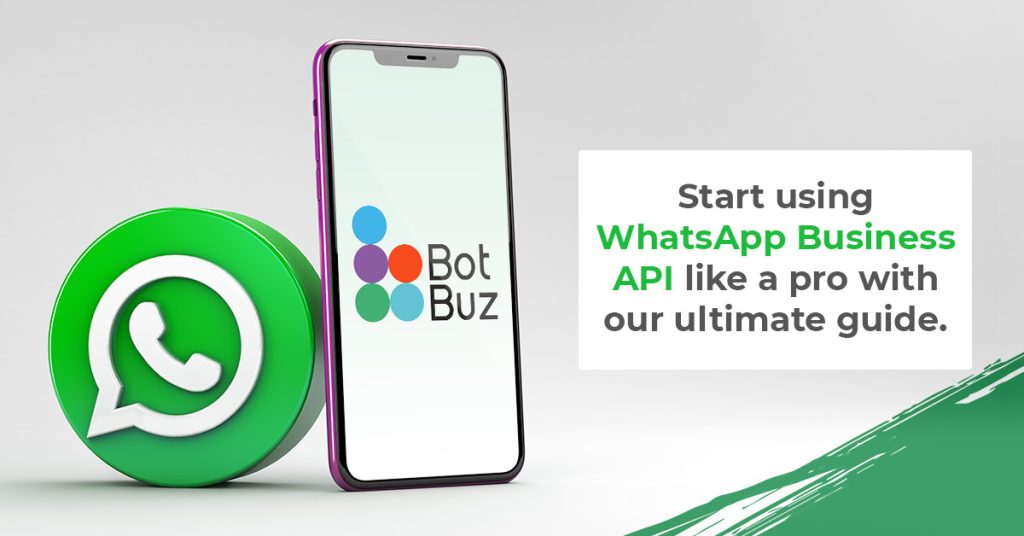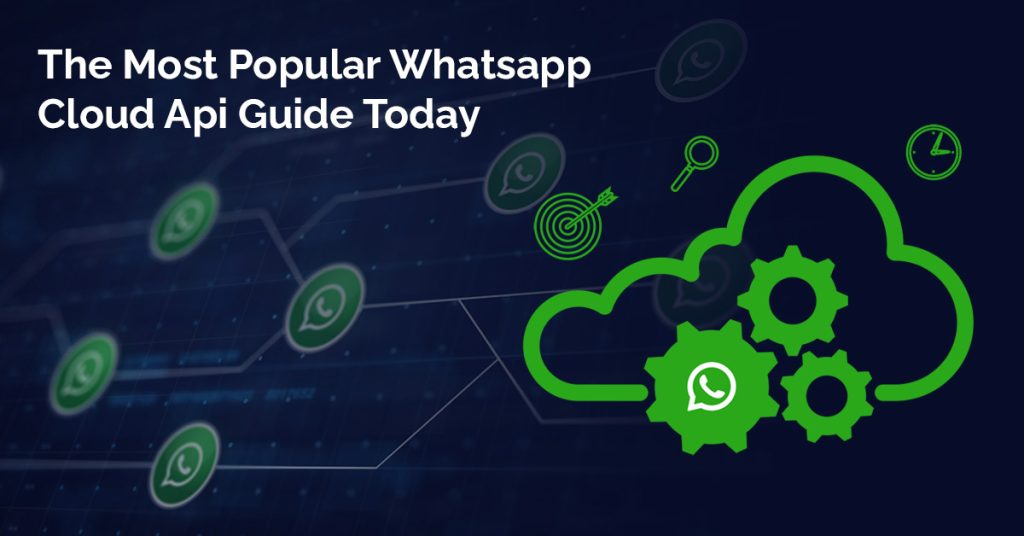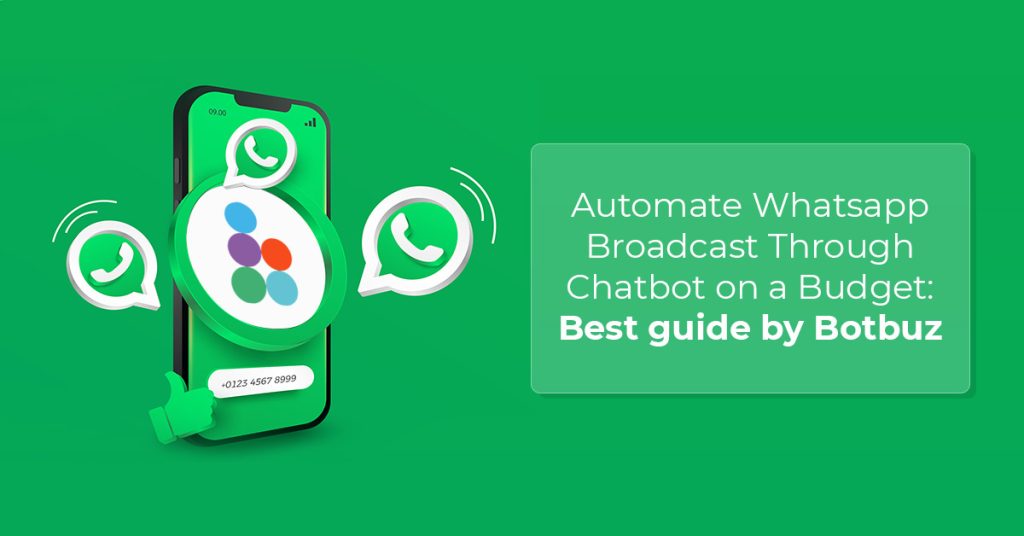- Role of WhatsApp in Education and EdTech Innovation :
- Why Should EdTech Institutions Use WhatsApp Business API for Education?
- Key Use Cases of WhatsApp Chatbots for Education :
- How to Set Up a WhatsApp Chatbot for Education : Step-by-Step Guide
- Best Features of a WhatsApp Chatbot for Education :
- Benefits of WhatsApp Integration for EdTech :
- Using Botbuz in WhatsApp for Education :
Role of WhatsApp in Education and EdTech Innovation :
Digital communication has transformed education by making it more accessible and interactive. It enables personalized learning & improves collaboration. Also it increases administrative efficiency for educational institutions and EdTech platforms. WhatsApp, in particular, is an ideal tool due to its widespread use, real-time communication features. It has versatility for sharing various types of content. The platform also helps build student communities by automating for large-scale use through its business API.
Why Should EdTech Institutions Use WhatsApp Business API for Education?
EdTech institutions should use the WhatsApp Business API. It has widespread use and the users have trust in the platform. It enables instant, two-way communication, which improves the student experience and can increase retention. The API is also a cost-effective and scalable solution for automation. It personalizes communication with a large audience, from admissions to ongoing student support.
Key Use Cases of WhatsApp Chatbots for Education :
WhatsApp for Admissions :
For admissions, institutions can use WhatsApp to streamline the entire process. They can automate responses to initial inquiries. It also provides instant answers to common questions, which saves time & improves efficiency.
It also is useful for sharing essential documents like brochures & course details with prospective students. WhatsApp simplifies the process of collecting application forms and other necessary documents directly through the chat.
Finally, WhatsApp is a powerful tool for personalized follow-ups. By sending timely reminders to students, institutions can encourage them to complete their applications. Thus, boosting enrollment rates.
WhatsApp for Student Onboarding & Engagement :
WhatsApp has become an effective tool for educational institutions. It helps to manage student onboarding and engagement. It allows schools and universities to send welcome messages and orientation materials. Thus, helping new students get acclimated and feel connected.
The platform is also used to keep students informed about their academic life. It provides timetables, academic calendars, and reminders for classes and deadlines. This ensures that students stay on top of their responsibilities & have crucial information readily available.
Furthermore, WhatsApp facilitates a quick and efficient communication channel. It is between students, faculty, and administration. It allows for instant information exchange. Thus, making it easier for students to get their questions answered & for staff to disseminate important updates.
Finally, the app can be used for personalized guidance and counseling. By enabling direct one-on-one communication, institutions can offer tailored support to students. It helps them feel more comfortable and encourages them to seek help when needed.
WhatsApp for Learning & Academic Support :
WhatsApp is an effective tool for learning and academic support. It allows educators to easily distribute study materials like notes and video links. Thus, making resources instantly accessible to students.
The platform also supports interactive learning. It allows teachers to conduct quick quizzes and feedback sessions. Furthermore, automated reminders for assignments |& exams can be sent to help students stay on track.
Finally, WhatsApp fosters a collaborative environment. It enables peer-to-peer and teacher-student group discussions. Thus, helping to create a supportive community for academic support.
WhatsApp for Parent-Teacher Communication :
WhatsApp is an excellent tool for improving parent-teacher communication. Its widespread use and familiarity make it an ideal channel for schools. It helps to keep parents informed about their child’s academic progress, attendance & behavior.
The platform streamlines the sharing of important information. Institutions can easily send out exam schedules, attendance reports, and performance updates. It is directly to parents’ phones, ensuring they have access to all necessary details.
By facilitating a simple and direct line of communication, WhatsApp strengthens parent engagement. It makes them more active participants in their child’s education & fosters a sense of partnership between the school & home.
WhatsApp for Alumni Relations :
WhatsApp is an excellent tool for maintaining strong relationships with alumni. It allows institutions to keep graduates engaged by sharing updates on institutional achievements & events. Thus, fostering a sense of continued community and pride.
The platform also facilitates professional networking. Institutions can create groups where alumni can share job opportunities & connect with peers. Thus, providing a valuable service that strengthens the school’s professional network.
WhatsApp helps in keeping alumni engaged and informed. The institutions can encourage them to become brand advocates. This positive promotion and support from graduates are crucial. It helps in enhancing the institution’s reputation and brand value over time.
How to Set Up a WhatsApp Chatbot for Education : Step-by-Step Guide
Setting up a WhatsApp chatbot for education is a strategic process. It involves several key steps. It requires more than just an app; it involves creating a well-thought-out system to handle communication, support & engagement. Here is a step-by-step guide to get an EdTech institution up and running.
1. Get WhatsApp Business API Access
The first and most crucial step is to get access to the WhatsApp Business API. This is the official gateway that allows businesses to send and receive a high volume of messages and integrate with other systems. Unlike the standard WhatsApp Business app, the API provides the tools necessary for automation & scalability.
To get access, an institution must partner with a WhatsApp Business Solution Provider like Botbuz. The BSP will guide the institution through the process of verifying its business with Meta – WhatsApp’s parent company. It helps in setting up a WhatsApp Business Account (WABA) and a verified phone number.
2. Choose a Chatbot Platform (like Botbuz)
Once API access is secured, the next step is to choose a chatbot platform. It helps in building and managing the conversational flows. A platform like Botbuz offers a user-friendly, no-code or low-code interface. It allows institutions to design complex chatbot interactions without extensive technical knowledge.
It is essential to select a platform with features specifically tailored for the education sector, such as the ability to handle a high volume of concurrent conversations, manage different user profiles (students, parents, alumni), and integrate with other systems.
3. Define Communication Workflows
Before building the chatbot, the institution must clearly define its communication goals. This involves mapping out the entire user journey. It starts from a prospective student’s initial inquiry to an alumnus’s long-term engagement. The workflows should be designed to handle a variety of tasks, such as :
Admissions: Automating FAQ responses, sharing course details, and collecting application forms.
Student Onboarding: Sending welcome messages, sharing orientation details, and providing access to resources.
Academic Support: Distributing study materials, sending assignment reminders, and facilitating group discussions.
Alumni Relations: Sharing institutional news, career opportunities, and event invitations.
4. Integrate Chatbot with CRM/LMS Systems
To truly provide a seamless and personalized experience, the chatbot should be integrated with the institution’s existing systems. It includes Customer Relationship Management (CRM) or Learning Management System (LMS). This integration allows the chatbot to access student data, such as a student’s course schedule, grades, or application status.
For example, when a student asks a question about an upcoming assignment, the chatbot can pull the information directly from the LMS and provide a personalized answer. This step is critical for moving beyond simple FAQ automation. It provides genuinely helpful and data-driven interactions.
5. Test and Optimize with Analytics and Feedback
Before launching the chatbot to a wide audience, it is essential to conduct thorough testing. This involves testing the conversation flows with a small group of users. It helps to identify any dead ends, unclear responses, or technical glitches. Once the chatbot is live, the work is not over. Institutions must continuously monitor the chatbot’s performance using analytics.
Key metrics to track include conversation completion rates, user satisfaction scores, and frequently asked questions the bot couldn’t answer. By analysing this data and gathering feedback from users, the institution can continually optimize the chatbot’s performance. It helps to improve its responses, and add new features to better serve its community.
Best Features of a WhatsApp Chatbot for Education :
The best WhatsApp chatbots for education offer several key features. They provide automated, real-time responses to handle a high volume of inquiries. Also it offers instant engagement. Multilingual support is crucial for communicating with diverse student communities. It makes the institution more inclusive.
The chatbot must integrate with CRM & student information systems. It helps to deliver personalized & data-driven responses. It should also be able to send personalized notifications and reminders to help students stay on track. Finally, the platform must ensure secure and reliable communication to protect sensitive information & maintain trust with users.
Benefits of WhatsApp Integration for EdTech :
Integrating WhatsApp into EdTech operations brings several key benefits. It significantly improves communication efficiency and reduces the administrative burden on staff. Thus, automating routine tasks, such as responding to common inquiries and sending reminders.
This enhanced efficiency leads to higher student and parent satisfaction. The real-time, personalized communication makes students feel more supported. It in turn helps to boost admissions and retention rates.
Furthermore, WhatsApp is an effective tool for building lasting relationships with alumni. By keeping them engaged with institutional updates and networking opportunities, institutions can turn graduates into valuable brand advocates. Thus, strengthening the school’s long-term reputation and brand value.
Using Botbuz in WhatsApp for Education :
Using a specialized chatbot like Botbuz on WhatsApp can greatly simplify educational processes. For admissions, the chatbot automates responses to prospective students. It instantly provides information and collects application details. This efficient system ensures no inquiry is missed & allows staff to focus on more complex tasks.
Throughout a student’s academic journey, the chatbot offers personalized support. It sends automated reminders for assignments and exams. Thus, providing quick access to study materials. This helps students stay organized and feel supported, improving their overall engagement.
Finally, the chatbot is a powerful tool for alumni relations. It automates updates on institutional news and events. Also it facilitates networking among graduates. This helps to maintain strong, lifelong connections with alumni. Thus, strengthening the institution’s community and reputation.
Conclusion :
WhatsApp is an ideal communication tool for EdTech. Its widespread use and real-time features helps to build a strong sense of community & provide essential support to students, parents & alumni. It is highly effective for engaging all stakeholders at every stage of the educational journey.
The true power of this integration is unlocked by a chatbot like Botbuz. This chatbot automates and personalizes key processes. It simplifies admissions with instant responses to provide ongoing academic support with timely reminders & resource access.
Together, WhatsApp & a chatbot like Botbuz create a cohesive and intelligent communication system. This synergy enables EdTech institutions to be more efficient, responsive, and personal. Thus, leading to enhanced satisfaction and better educational outcomes throughout a student’s lifetime.




